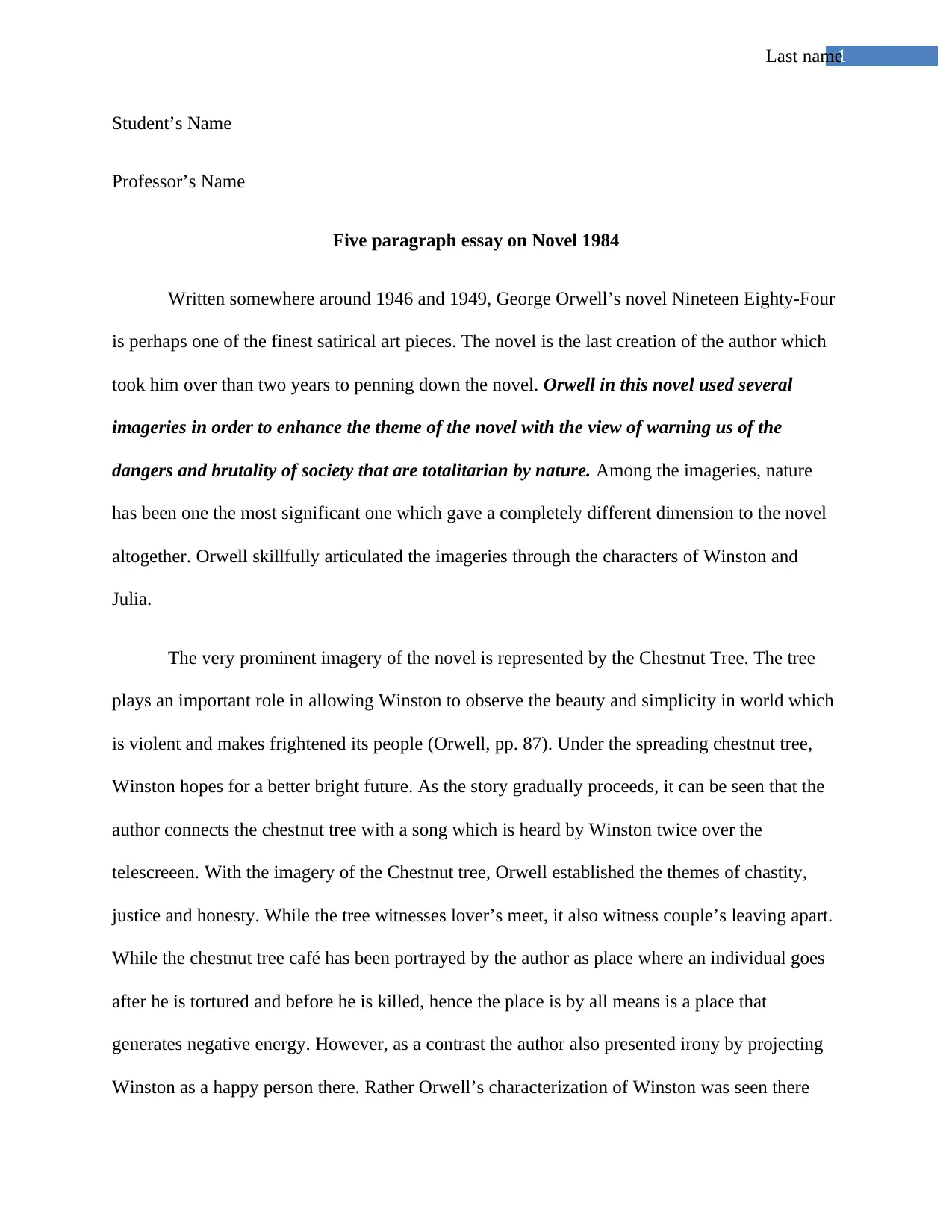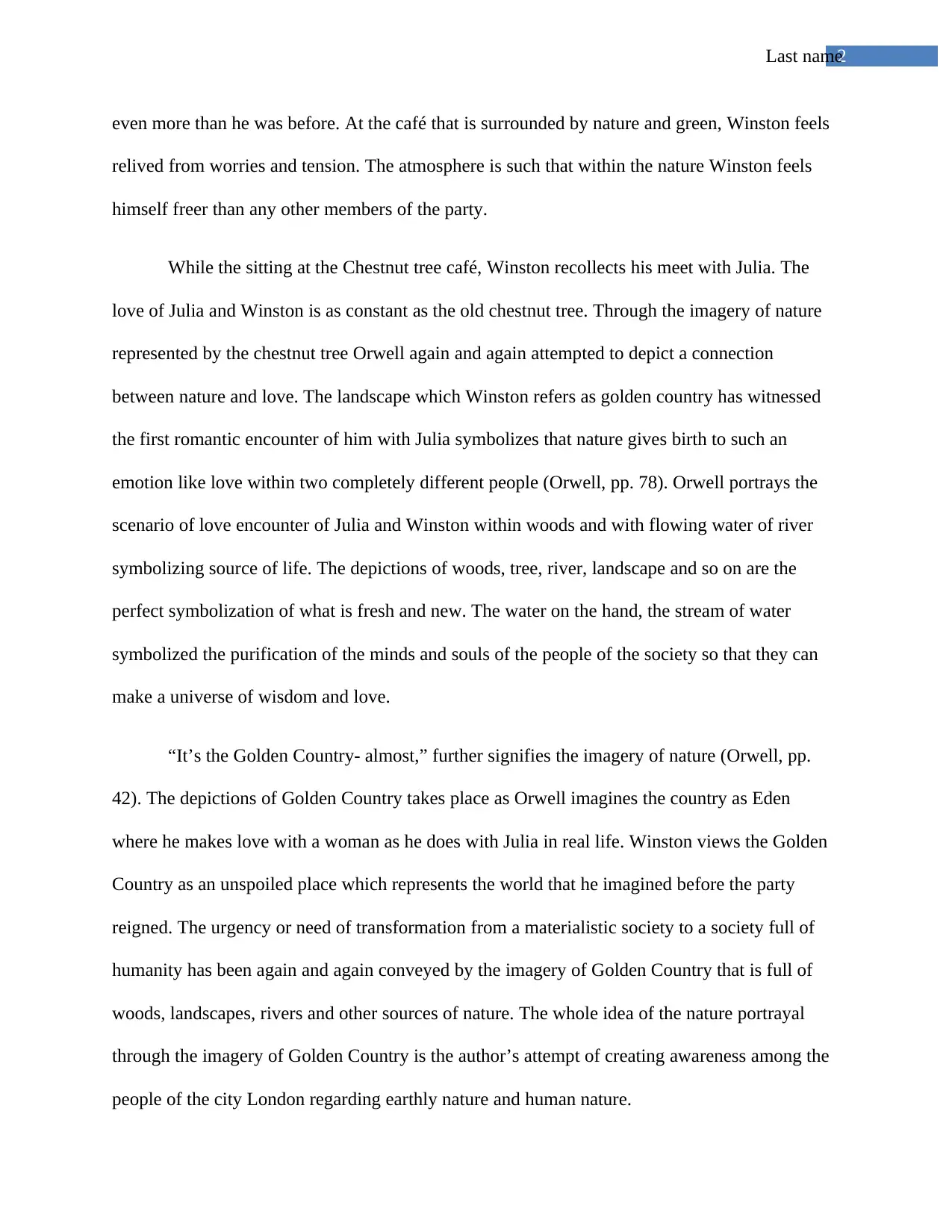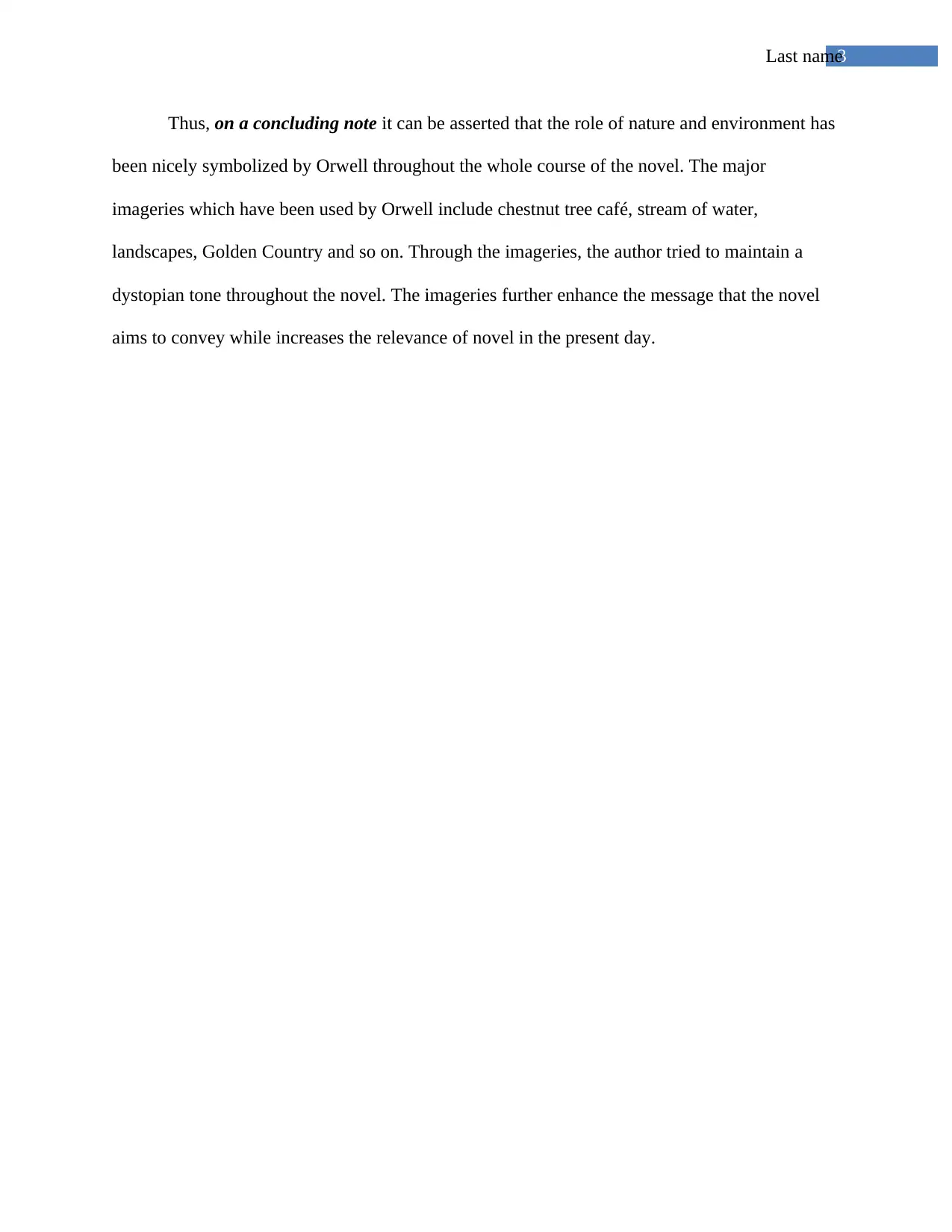The Role of Nature Imagery in George Orwell's Novel, 1984 Essay
VerifiedAdded on 2021/09/17
|4
|826
|64
Essay
AI Summary
This essay analyzes the significant role of nature imagery in George Orwell's dystopian novel, *Nineteen Eighty-Four*. The essay focuses on how Orwell uses various natural elements, such as the chestnut tree and the Golden Country, to enhance the novel's themes of totalitarianism, love, and the human spirit. The essay highlights the symbolism of the chestnut tree as a place of both hope and despair for Winston, and examines how the Golden Country represents a longing for freedom and a connection to the natural world. The essay explores the connections between nature and love through the relationship of Winston and Julia, and how the settings of woods and rivers symbolize purity and renewal. Overall, the essay argues that the consistent use of nature imagery throughout *Nineteen Eighty-Four* serves to amplify the dystopian tone and heighten the relevance of the novel's messages about the dangers of totalitarian control and the importance of human connection.
1 out of 4





![[object Object]](/_next/static/media/star-bottom.7253800d.svg)